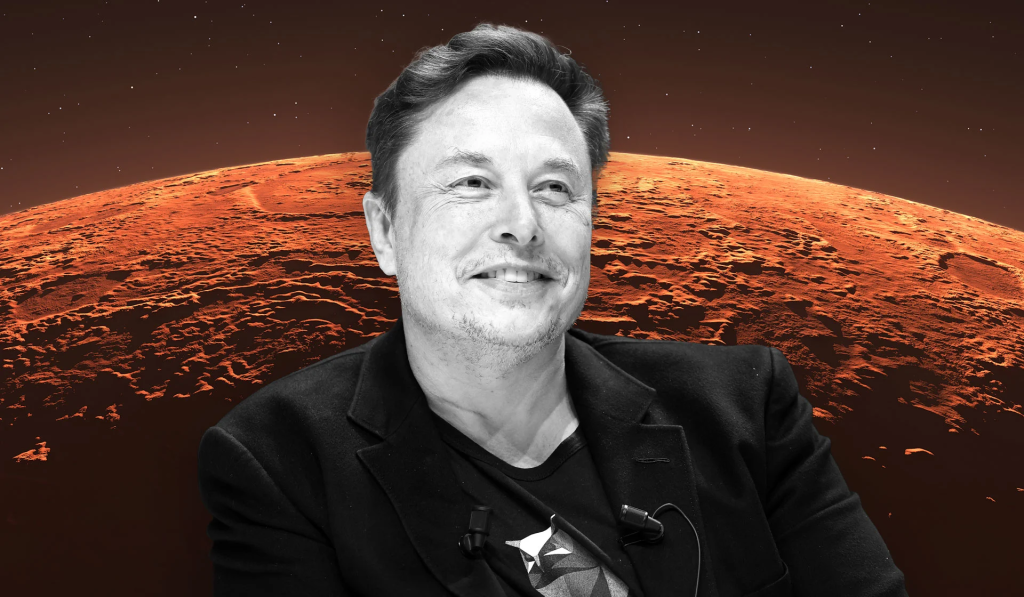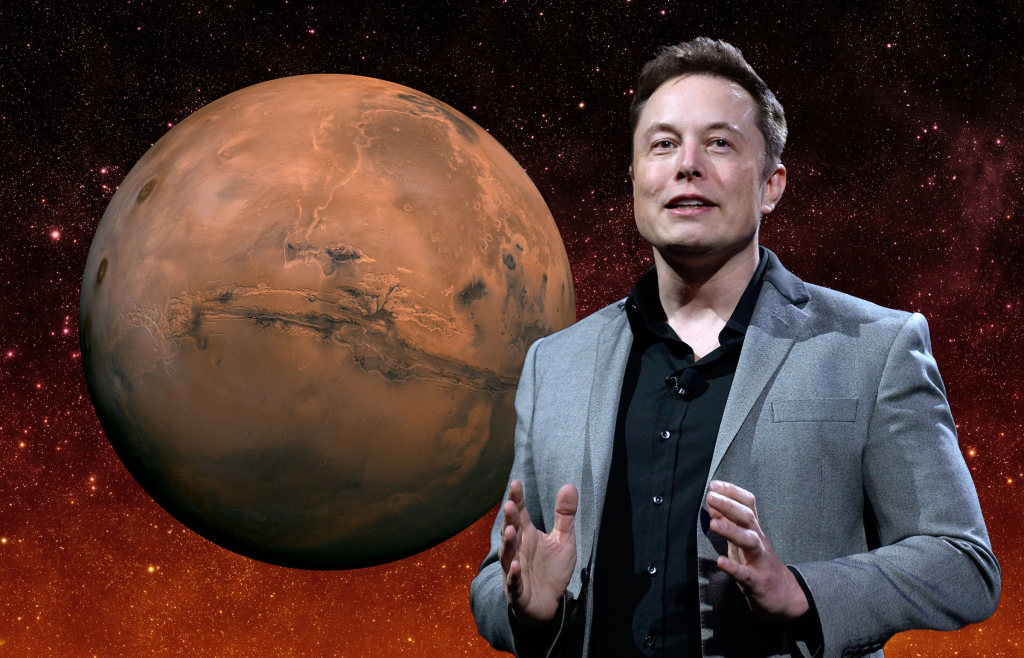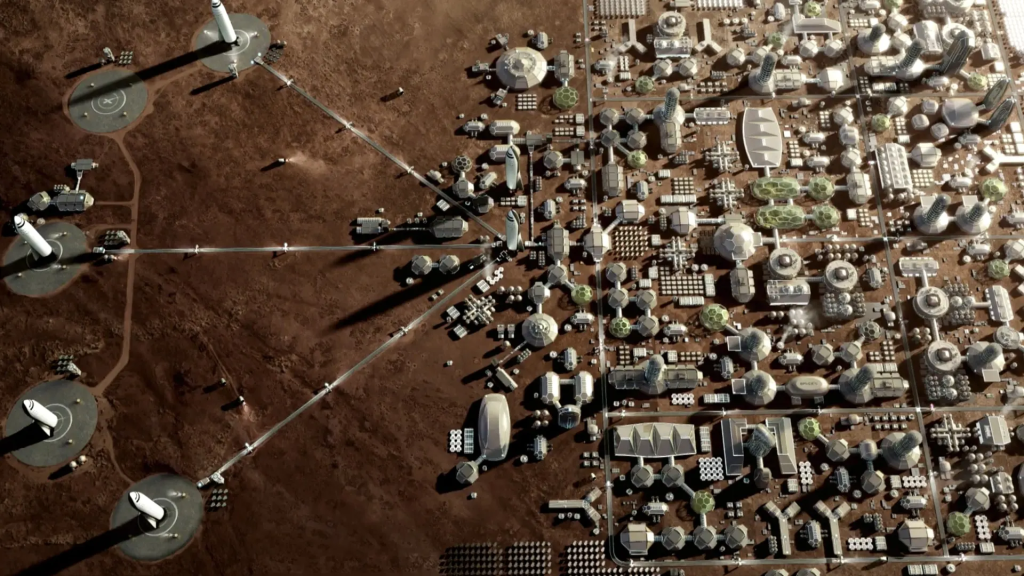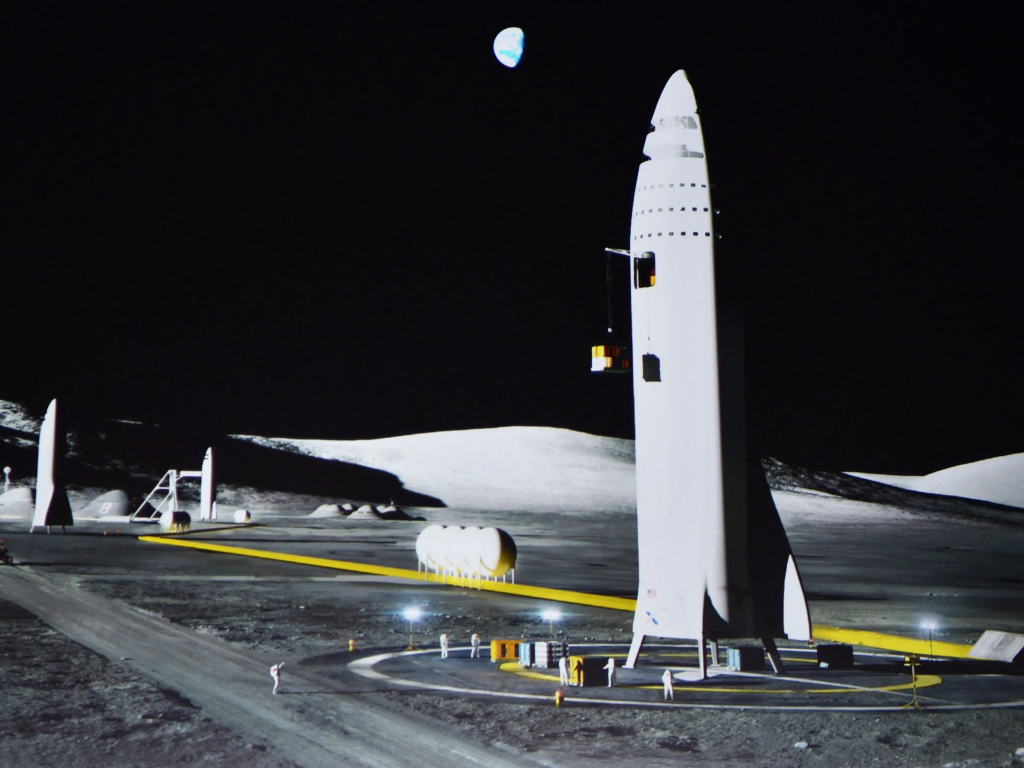
Elon Musk’s ambitions extend far beyond Earth, with his sights set firmly on Mars as the next frontier for humanity. As the CEO of SpaceX, Musk has dedicated much of his career to making life on Mars a reality, not just for space tourists, but for sustainable, long-term human habitation.According to various sources, Musk is currently overseeing a highly secretive project that could have profound implications for the future of space exploration and human survival on Mars. This project, rumored to be a crucial part of SpaceX’s Mars Base Alpha initiative, involves the development of an experimental garden on the Martian surface.The idea of growing crops on Mars might seem like something out of a science fiction novel, but Musk’s secret garden project could be a game-changer. The project is reportedly designed to test the viability of agriculture in the harsh Martian environment, with a focus on cultivating plants in low-gravity and low-atmosphere conditions.

While details about the project remain largely speculative, sources close to SpaceX indicate that Musk and his team are already conducting tests to see if plants can survive and thrive on Mars, making this one of the most exciting developments in the pursuit of interplanetary colonization.One of the key challenges facing any human settlement on Mars is the ability to produce food sustainably. Mars, with its thin atmosphere, freezing temperatures, and lack of liquid water on the surface, presents a stark contrast to Earth’s life-sustaining environment. However, Musk’s ultimate goal for Mars is to create a self-sustaining colony—one that does not rely on constant resupply missions from Earth.For this vision to become a reality, a reliable and efficient way of growing food on the Red Planet is essential. The experimental garden, therefore, serves as a testing ground for future agricultural methods that could allow humans to cultivate crops on Mars, without relying on external resources.While much of the information about the project remains secret, sources suggest that Musk’s garden is an integral part of the broader Mars Base Alpha initiative, which aims to prepare Mars for human habitation. According to insiders, Musk’s secret garden is designed to simulate the challenges that plants would face in the Martian environment, with special attention paid to factors such as gravity, radiation, and atmospheric conditions.This is no small task, as the Martian environment is incredibly harsh. The planet’s gravity is only about 38% of Earth’s, which could have significant effects on plant growth. The atmosphere is over 100 times thinner than Earth’s, composed mostly of carbon dioxide, with only trace amounts of oxygen. Furthermore, Mars lacks the magnetic field that protects Earth from solar radiation, which could make growing crops even more difficult. Nonetheless, Musk and his team are working tirelessly to understand how plants might adapt to such extreme conditions.One of the primary goals of the project is to test whether plants can be cultivated in Martian soil, or if artificial methods will be required to provide the necessary nutrients for growth. Researchers are likely experimenting with hydroponic or aeroponic systems, which are methods of growing plants without soil.These systems use nutrient-rich water or air to deliver the necessary nutrients to plant roots, and they could be ideal for growing crops in an environment like Mars, where the soil is not only barren but also toxic to most Earth-based plants. By simulating Martian conditions, Musk hopes to gather valuable data on how to optimize these systems and adapt them for future use on Mars.

The project’s long-term aim is to lay the groundwork for sustainable food production on Mars, an essential step toward establishing a permanent human presence on the planet. The ability to grow food on Mars would eliminate the need for constant resupply missions from Earth, which would be both costly and logistically difficult.Musk has often emphasized the importance of creating a self-sustaining system on Mars, not only for food production but for water, energy, and other resources. His vision for Mars is one where humans can live independently of Earth, and this garden project is a critical step toward making that vision a reality.Musk’s focus on sustainability is also reflected in his approach to the project. The experimental garden is said to include systems designed to recycle water, air, and nutrients, creating a closed-loop environment similar to what would be required on Mars. This would allow for the efficient use of resources, reducing the need for external supplies.Musk’s desire for a sustainable colony on Mars is not just about food production, but about creating an environment where humans can thrive without constantly relying on Earth for resources. By developing a system that works efficiently on Mars, Musk hopes to ensure that the first human colony is both self-sustaining and resilient.While the garden project is still in its early stages, the implications for the future of space exploration are enormous. If successful, Musk’s project could revolutionize the way humans approach interplanetary colonization. Growing food on Mars would not only make it possible for humans to live on the planet, but it would also mark a major step forward in our ability to adapt to new environments.

The successful cultivation of plants on Mars could also pave the way for similar projects on other planets, such as the Moon, where astronauts will one day need to grow their own food.Musk’s vision for Mars is bold, ambitious, and incredibly challenging, but it is also grounded in practicality. The creation of a self-sustaining colony on Mars will require more than just technological innovation—it will require solving some of the most difficult problems in science, engineering, and agriculture.Musk’s garden on Mars is one of the first steps toward addressing these challenges, and it has the potential to revolutionize the way we think about space colonization. Whether or not the project ultimately succeeds, it is clear that Musk’s approach to space exploration is both daring and forward-thinking, and his commitment to making humanity a multi-planetary species remains unwavering.The secretive nature of the project only adds to the intrigue surrounding Musk’s plans for Mars. As with many of his ventures, Musk has kept the details of this garden experiment under wraps, revealing only bits and pieces of information to the public.This secrecy is typical of Musk’s management style, as he is known for keeping his most ambitious projects hidden until they are ready for public unveiling. The garden, however, may be one of the most significant and groundbreaking of these projects, offering a glimpse into the future of humanity’s presence on Mars.In conclusion, Elon Musk’s secret Martian garden represents a crucial step in his vision for the future of space exploration. By experimenting with plant cultivation in Martian conditions, Musk and his team are laying the foundation for a sustainable human presence on Mars. While much about the project remains unknown, its potential impact on the future of space exploration cannot be overstated.

Musk’s willingness to tackle the most difficult challenges of space colonization head-on is a testament to his determination and ambition, and it is this drive that will likely shape the future of humanity in space for generations to come. Whether or not the garden project ultimately succeeds, it is clear that Musk’s vision for Mars is more than just a dream—it is a carefully planned and meticulously executed mission to ensure humanity’s place in the cosmos.RELATED ARTICLES


